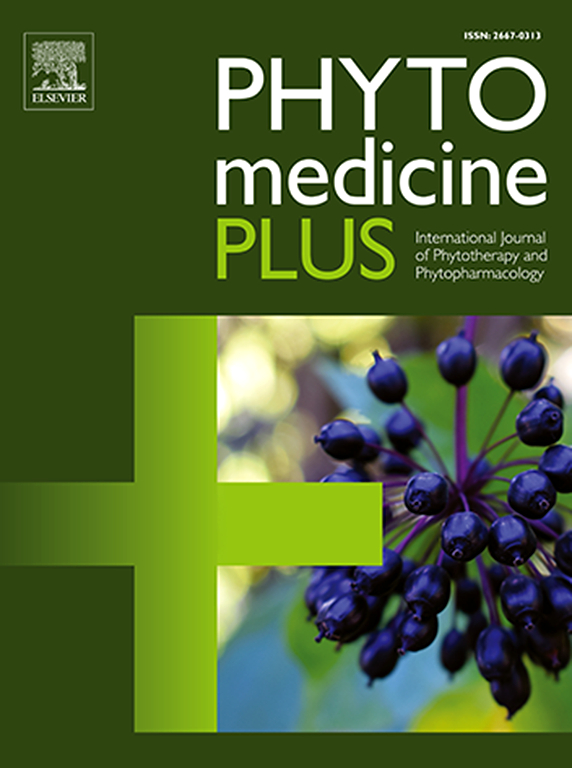Assessing the influence of matcha green tea extract on NF-κB/MAPK signaling pathway activation in rats: A study on irradiation-induced acute hepatic inflammatory response
Q3 Pharmacology, Toxicology and Pharmaceutics
引用次数: 0
Abstract
Background
Numerous forms of cancer are frequently treated with radiation therapy, which provides substantial benefits in tumor control. However, adverse effects, particularly the development of severe hepatitis, may render radiation therapy ineffective.
Purpose
This study investigates the potential of matcha (M) green tea extract, a natural compound known for its high antioxidant properties and health-promoting properties, in a new approach to reduce radiation-induced liver damage.
Study design and method
In this experimental investigation, the administration of M was conducted on female Wistar rats for duration of two weeks after gamma-ray irradiation. Next, a series of biochemical experiments were conducted to examine the impact of M on lipid peroxidation levels, antioxidant enzyme activities, and pro-inflammatory cytokines (IL-6, IL-10, and TNF-α) in liver tissue. The Western blot method was employed for this analysis. Liver miR-122 expression levels were determined using real-time reverse transcription polymerase chain reaction. In addition, the present study investigated the mechanism by which M stops the inflammatory process's crucial NF-κB/MAPK signaling.
Results
This study suggests that the NF-κB/MAPK signaling pathway that triggers the radiation-induced inflammatory response is further inhibited by M making radiation therapy effective and safe.
Conclusion
Further research in this area may reveal the underlying mechanisms and pave the way for the development of novel therapies for radiation therapy patients.

评估抹茶绿茶提取物对大鼠NF-κB/MAPK信号通路激活的影响:辐射诱导的急性肝脏炎症反应的研究
背景:许多形式的癌症经常使用放射治疗,它在肿瘤控制方面提供了实质性的好处。然而,副作用,特别是严重肝炎的发展,可能使放射治疗无效。目的:本研究探讨绿茶抹茶提取物(一种以其高抗氧化和促进健康特性而闻名的天然化合物)在减少辐射引起的肝损伤方面的潜力。研究设计与方法在本实验研究中,雌性Wistar大鼠在伽玛射线照射后给予M,持续两周。接下来,我们进行了一系列生化实验来检测M对肝组织脂质过氧化水平、抗氧化酶活性和促炎细胞因子(IL-6、IL-10和TNF-α)的影响。采用Western blot方法进行分析。采用实时逆转录聚合酶链反应测定肝脏miR-122表达水平。此外,本研究还探讨了M阻止炎症过程中关键的NF-κB/MAPK信号传导的机制。结果本研究提示M可进一步抑制触发辐射诱导炎症反应的NF-κB/MAPK信号通路,使放射治疗有效且安全。结论该领域的进一步研究可能揭示其潜在机制,为放射治疗患者开发新的治疗方法铺平道路。
本文章由计算机程序翻译,如有差异,请以英文原文为准。
求助全文
约1分钟内获得全文
求助全文
来源期刊

Phytomedicine Plus
Medicine-Complementary and Alternative Medicine
CiteScore
3.70
自引率
0.00%
发文量
178
审稿时长
81 days
期刊介绍:
 求助内容:
求助内容: 应助结果提醒方式:
应助结果提醒方式:


